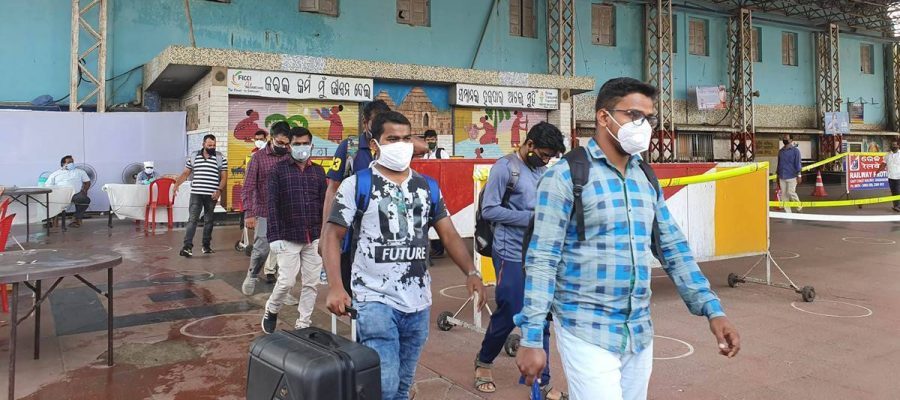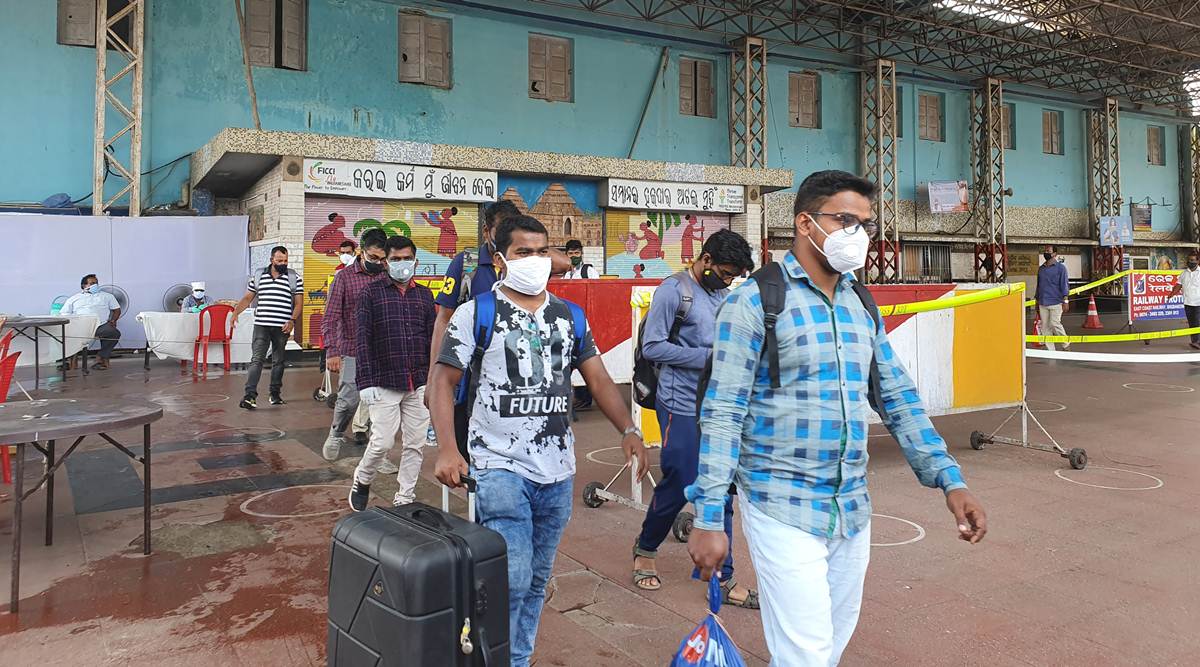Having lost his job, Sahu started his own garment manufacturing unit in his village Gunthi in Kendrapara district. He employed 70 other youths from his village and nearby villages who had either lost their jobs due to the pandemic, or were forced to return home.
Like so many other migrants, Ranjan Sahu, 40, was hit hard by the national lockdown which followed the Covid-19 pandemic unfolding in March last year.
Having lost his job, Sahu started his own garment manufacturing unit in his village Gunthi in Kendrapara district. He employed 70 other youths from his village and nearby villages who had either lost their jobs due to the pandemic, or were forced to return home.
Almost a month after the lockdown in April last year, facing severe financial constraints, the garment unit in Kolkata he had been working for over seven years had shut down, rendering all its employees jobless.
“I returned home and was sitting idle, with nowhere to go and without any fresh opportunities. I had my savings to sustain myself and my family, but I realised that not a lot of people had enough savings and were constantly looking for work. In my village a lot of people had returned from Kerala and Surat who worked in the textile and garment industries. That is when I decided to start something on my own and started this venture,” Sahu told The Indian Express.
Nearly 110 km from Bhubaneswar, in his village of Gunthi in Pattamundai block of Kendrapara district, Sahu set up his first garment manufacturing unit — Royal Green Garment Company. Spread across 3,000 square feet, with 45 sewing machines, the unit has been functional since January this year, employing 70 migrants who had returned to their native villages due to lack of jobs. They now produce formal shirts, tee shirts and trousers.
Sahu dropped out of school when he was 18, and like many others from his village, left Odisha in search of work. A class X dropout, he picked up the skills of working in the garments industry for nearly 22 years across cities like Delhi, Bangalore, Kolkata, Surat and even Nepal.
“I have worked in various capacities across cities, mostly as production manager. I had a comfortable job and never thought I would start something on my own. The pandemic changed a lot of things. We also plan to expand and hire more people as and when the demand increases,” Sahu said.
For the residents of Gunthi and nearby villages, he has been a saviour in the time of crisis. Sagarika Panda, 22, used to work at a garment manufacturing unit in Ernakulam in Kerala. The eldest daughter, she had taken up the job to provide for her family. Her father, a farmer, had suffered losses due to cyclone Fani in the coastal village. But within months of joining the job, she was left jobless amidst the raging pandemic.
“After the first lockdown even my parents were reluctant to send me away to another state for work. We were stranded at the unit in Kerala for over a week before help reached us. But after returning home, there was no livelihood opportunity for me and financially we were struggling everyday,” said Panda, who earns Rs 6,000 a month.
“I am happy that we got an opportunity right here close to the village,” she said.
Another worker, Dina Lenka, from Adhajori village five kilometres away from Gunthi, had returned from Kolkata after the lockdown.
“I learned sewing from an NGO here three years ago. After that I moved to Kolkata for work. Everything was smooth until the pandemic. My father is a farmer and he needed us to work and financially support him. We were left with no money. I wanted to return to Kolkata in November when the cases dropped but my parents were sceptical, so I stayed back. A month later we came to know about this unit in Gunthi,” she said.
“Majority of the people from our village migrate for work. Migration increased after cyclones which adversely affected livelihoods here. A job opportunity at a garment unit is like a boon for us,” she said.
Source: Read Full Article


